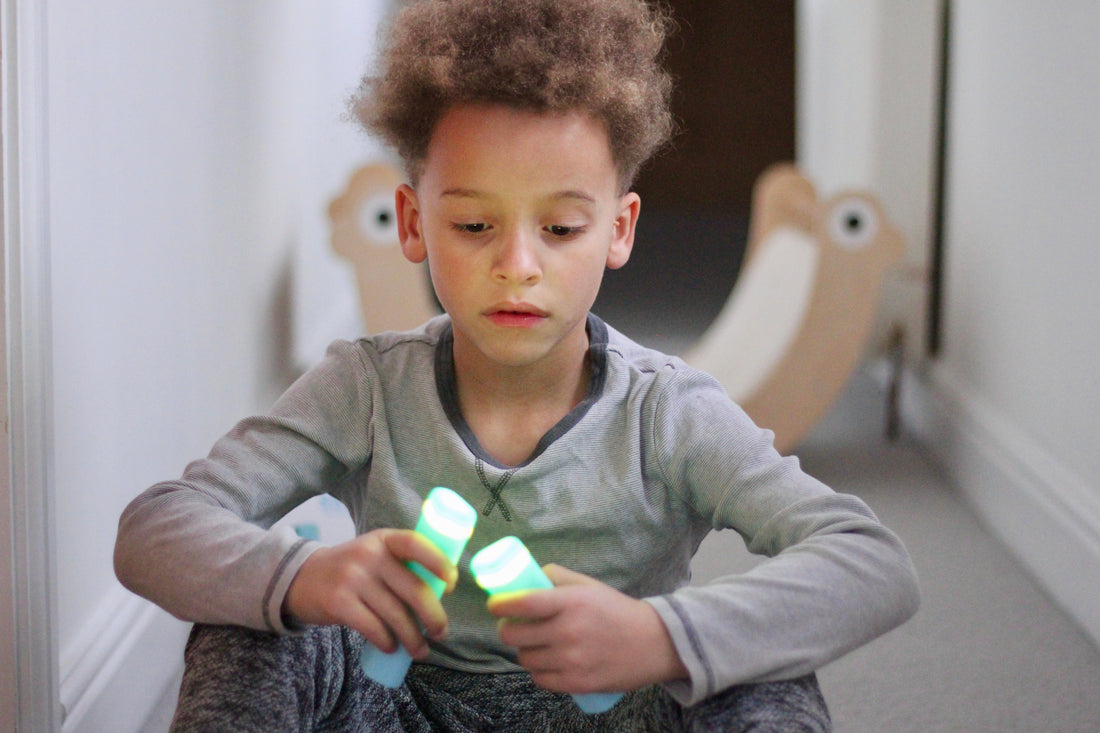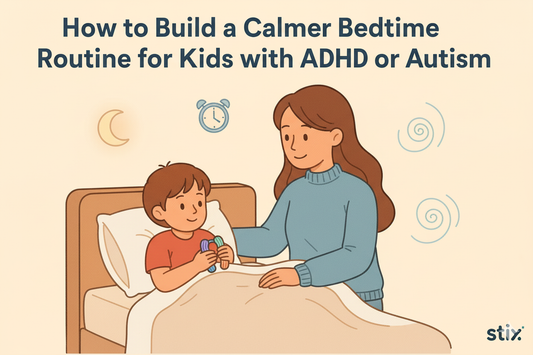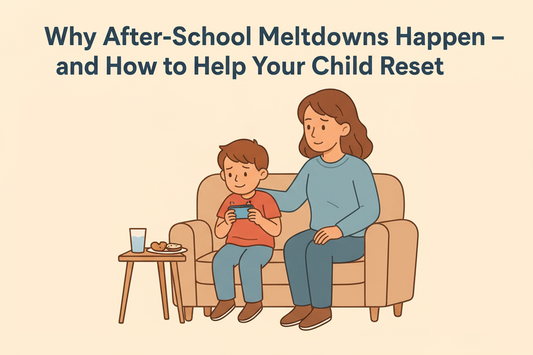How to Help Your Child Stay Calm During SATs Week

SATs week can be a stressful time, not just for children, but for parents too.
As children prepare to sit their national tests, many experience worry, self-doubt, and even physical symptoms of anxiety.
The good news? There are practical, child-friendly ways to ease stress and build resilience. In this post, we’ll help you recognise the signs of SATs anxiety and share calming tools to support your child’s mental well-being before, during, and after the tests.
What Are the Signs of SATs Anxiety in Children?
It's completely normal for children to feel nervous before exams. But for some, SATs can cause deeper feelings of anxiety that impact their daily life. Here are some common signs to watch for:
- Difficulty sleeping or frequent nightmares
- Unexplained stomach aches or headaches
- Irritability, mood swings, or tearfulness
- Excessive worry or fear of failure
- Withdrawing or avoiding SATs-related talk
- Fidgeting, nail biting, or restlessness
- Perfectionism or fear of making mistakes
If you notice any of these behaviours, your child may be struggling with stress — and it’s important to respond with calm, reassurance, and the right support.
5 Ways to Reduce SATs Stress and Support Mental Health
1. Create a Calm Morning Routine
The way your child starts their day can make a huge difference to their emotional state. Try building a stress-free routine:
- Wake up 10 to 15 minutes earlier to avoid rushing
- Use a short breathing exercise together (like a Stix “Focus” activity)
- Pack bags and clothes the night before
- Offer positive words: “I believe in you. Just try your best.”
A calm start helps your child feel safe, grounded, and ready to focus.
2. Introduce Mindfulness for Emotional Resets
Mindfulness is proven to help children reduce anxiety and improve focus — key ingredients for a positive SATs experience.
Stix Mindfulness makes this simple. Our screen-free, interactive remotes guide children through breathing, movement, and focus activities. Just a few minutes of mindful play each day can:
- Calm nerves
- Boost self-confidence
- Improve concentration
- Help kids feel more in control of their emotions
It’s a small habit that makes a big difference.
3. Focus on Effort, Not Perfection
When children fear they’ll “fail” or “let someone down,” anxiety can build quickly. As a parent, your reassurance matters more than you realise.
Try saying:
- “I’m proud of how hard you’ve worked.”
- “These tests don’t define you — you’re more than a score.”
- “What matters most is that you tried your best.”
This helps reduce pressure and encourages a healthy mindset.
4. Support Better Sleep with a Wind-Down Routine
Sleep plays a huge role in emotional regulation and memory — both essential for exam performance. But anxiety often peaks at bedtime.
Help your child settle with a calming evening routine:
- No screens for 30–60 minutes before bed
- Use a Stix “Breathe into Sleep” or “Body Scan” activity
- Talk through any worries in a non-judgemental way
- Keep the bedroom environment quiet and cosy
Better sleep = better moods, focus, and confidence.
5. Support Yourself Too
SATs week can be draining for parents. You’re trying to be strong and supportive — but it’s okay if you feel anxious too.
Take small moments for yourself when you can. Join in with a Stix activity to reset together, or take a quiet moment while your child is focused.
Remember: your calm is contagious.
SATs Are Just One Moment - Well-Being Lasts a Lifetime
SATs matter, but your child’s emotional health matters more. By helping them manage anxiety, build self-awareness, and discover mindfulness, you’re giving them tools that will last far beyond the classroom.
Whether it’s a morning reset or a post-test wind-down, Stix is here to help your child feel calmer, more confident, and ready to thrive.



